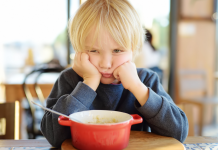I watched my newly minted six year old daughter throw sand at her brother earlier this month, not only getting sand all over him, but on an unsuspecting couple trying to enjoy a beach day. She walked away without saying a word. It acutely reminded me that teaching children to apologize is one of the most important lessons we can possibly show them. However, for me, teaching my kids empathy is just as important as the apology itself. Here is the four prong approach I use to help move the conversation from apathy to empathy and apology.
1. Start with accountability
Kids often times try to get out of trouble by not taking accountability. Conversely, they’re embarrassed or upset by what just transpired because they are still developing social and emotional control. I can’t tell you how many times I’ve heard the words ‘so and so did it, not me.’ Or, ‘I didn’t mean to, they made me do it.’ Each time there is an unfavorable behavior, I start with having them take accountability for their specific actions. By understanding that they are in charge of their actions and behavior, it creates accountability for what they say and do. I find for my kids, having an awareness that someone has noticed what they’re doing makes them think again about a repeat of that particular behavior.
2. Talk about the why
As children, the word why is a staple in their vocabulary. Their curiosity grows as they are more in tune with the world around them. I’ve often times used the word why to my advantage, especially when correcting a behavior. I first use it as a question, followed by a statement. Asking your child why they did something lets them explain to you what was going on in their head. Sometimes, they can articulate exactly why. Other times, kids act on impulse without understanding how their action impacts others. This is where the statement why comes in. It allows you as the parent or accountable person, to explain why their behavior was unfavorable and help them understand how their actions can harm others.
Teach them more than “I’m sorry”
For my kids, the actual apology itself is most meaningful for everyone if they have full understanding behind it. I often times ask my kids how they would feel if it happened to them, or they were treated the way they treated someone else. Although it’s so simplistic, I try to make my parenting style as uncomplicated as possible. These leading questions offer a sense of both accountability and understanding before the words i’m sorry are even spoken. I like to let my kids lead the apology. Usually when it’s family, a hug and i’m sorry is best. When they are apologizing to a friend or someone a little more formal, they lead with ‘i’m sorry because_______’. This creates an open invitation for both parties to move forward. I don’t place a lot of emphasis on the words i’m sorry, but rather the actions moving forward.
4. Teach your child empathy
Showing your child empathy is just as important as asking them to show empathy. I’ve found in some situations, an apology goes a long way. In other situations, it takes a little bit of time for the other person to come around after they’ve been hurt. It’s just as important for the parent or caregiver to show that you understand what a big step apologizing is as it is for them to apologize. They might not understand why the other person isn’t as quick to forgive, or that they don’t accept their apology. Reassuring your child that they did everything they could to make it right helps give them the social and emotional skills to understand big feelings.
Teaching children to apologize is no easy task. Even as an adult, I find that i’m still learning how to say and do the right thing. As a mom, it’s so important to me to do the best that I can to send my children out into the world as kind and empathetic individuals. I want them to be able to take on the world and have the strength to apologize and take accountability when they’ve hurt someone. Helping my kids navigate the trickier situations with the emotional support they need makes all the difference in the world as a mom, and I hope that it makes all the difference in the world for them as well.
And for the record, my daughter ended up apologizing to both her brother and the nice couple next to us at the beach.










